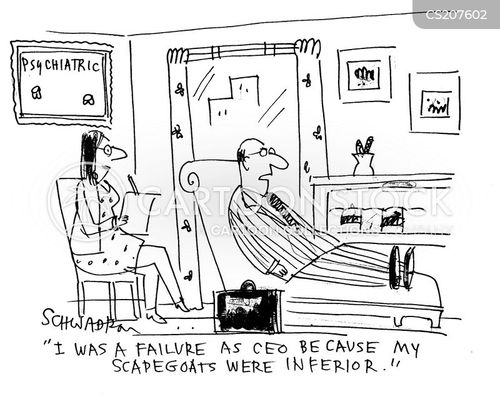As an alert to Matt Ridleys article, there is a small insert reading: “The Government should review immigration policies or the British Health Sector could fall behind the rest of the world, a report by the all-party parliamentary group on global health says. Analysis by the group found that a rethink of visa laws might be needed to ensure that the best people could work on health and life sciences in the UK. NHSreality comments that this is true, but only because we have not trained enough scientists or doctors… Rationing by undercapacity means we now need to import if we are to care for the population properly.
In The Times 29th June Matt Ridley opines: Britain has the chance to be the world’s doctor
Health will be the booming industry of the 21st century and we need to cash in on our expertise in so many areas
If the 19th century saw extraordinary changes in transport, and the 20th saw amazing changes in communication, my money is on health as the transformative industry of the current century. It is already arguably the biggest industry in the world and it is growing at a phenomenal rate, especially in Asia, where India and China are expanding their health sectors at 15 per cent and 12 per cent a year respectively. And health is ripe for a series of revolutionary advances in biotechnology, digital technology, robotics and materials.
A new report commissioned by three parliamentarians, Meg Hillier, MP, Lord Crisp (former chief executive of the NHS) and the surgeon Lord Kakkar, and written by researchers at the London School of Hygiene and Tropical Medicine, makes the case that Britain is well placed to become the world’s “health hub”. Just as the City of London is the world’s financial centre and Wimbledon is the centre of tennis, so Britain is already a surprisingly dominant player in research, practice, policy and regulation when it comes to health, and widely emulated around the world. There is an opportunity here.
The sheer breadth of our dominance in global health came as a surprise to me. I was aware that Britain has played a prominent role in biomedical research. After all, “we” found or invented antibiotics, DNA’s structure, cloning, in-vitro fertilisation, mitochondrial donation and much more. But I had not realised how much clout — or “soft power” to use the fashionable term — we wield in health policy and regulation: in rules as well as tools.
Take, for example, the Cochrane Collaboration. In 1992 in Oxford, a group of health researchers set up a centre named after the Scottish doctor Archibald Cochrane, who had realised while treating fellow prisoners of war in Germany that there was “no real evidence that anything we had to offer had any effect on tuberculosis, and I was afraid that I shortened the lives of some of my friends by unnecessary intervention”. He pioneered the use of randomised control trials.
Today that centre has grown into a network of collaboration in 120 countries whose database has reviewed the effectiveness of 8,700 treatments. The reviews are free from commercial sponsorship and are considered the gold standard in providing the evidence base to justify using a drug or procedure.
Or consider Nice International, the global offshoot of the National Institute of Health and Care Excellence — the body that decides, often to the fury of some pharmaceutical firms and patient groups, that some treatments are not cost-effective. It turns out that the Nice model is in demand around the world from countries keen to work out how best to spend limited health budgets. Set up in 2008, Nice International does not make a profit but charges fees to client countries as well as aid agencies and foundations.
Unlike in manufacturing or agriculture, we really are top of the league in health. We have three of the top five universities in the world for clinical, pre-clinical and health subjects. We have the top science journal and two of the top four medical journals. We have the world’s second largest charity (Wellcome) and the world’s largest cancer research charity (Cancer Research UK). We rank top among G7 countries for the quality of research in clinical medicine, pre-clinical and human biological sciences, and infection and immunology.
The world’s top-selling drug Adalimumab (for rheumatoid arthritis) came out of Cambridge. The stunning decline in malaria in recent years — global mortality down by 47 per cent since 2000 — though heavily funded by the Gates Foundation, is to a large extent down to British research, including the discovery of artemisinin therapy and promising trials last month of a malaria vaccine, both from Oxford University.
We also punch above our weight in health aid. We are the second largest aid donor in the world, and health is the top category of aid spend in most countries. Britain is the second largest donor to the Global Fight Against Aids, TB and Malaria and the largest state donor to the Global Polio Eradication Initiative. We dominate research in the battle against “neglected tropical diseases” such as blinding trachoma and Guinea worm.
Apart from patting ourselves on the back for this, what’s the opportunity? After all, London’s dominance in international finance leads directly to large fees, whereas a lot of our dominance of global health battles comes from our willingness to spend money generously — especially taxpayers’ money. Getting rid of tropical diseases is a good thing in itself, and it eventually must enrich our potential trading partners, which benefits us too. But it is not immediately profitable.
In fact, the one sector where the report finds we are not quite so dominant is the commercial sector. We have one big medical technology company (Smith & Nephew) and cannot match Switzerland’s and America’s dominance of the pharmaceutical industry. We have (only) the fourth biggest biotech pipeline in the world. It’s South Korea that is pouring money into data management for medical purposes.
That, says Lord Crisp, is where the opportunity comes in: to turn some of our soft power into commercial opportunities. DfID, anxious not to confuse aid with trade, still does too little to exploit the expertise of the NHS. Sierra Leone, where 800 British NHS workers volunteered during the ebola epidemic, is surely the place to start.
I have my doubts as to whether a centralised monopoly is the best way to deliver healthcare for Britons, but given that this is what we have, it’s worth noting that it brings certain opportunities that more fragmented health systems lack and other countries are keen to learn from: central accreditation of doctors, or the ability to share and analyse huge amounts of data.
We can train doctors from other countries, set up overseas campuses and market the services of the royal colleges and General Medical Council as model regulators and standard setters. This already happens to some extent: the Tropical Health Educational Trust has projects in 26 countries reaching 25,000 health workers, while Newcastle medical school has a campus in Malaysia and Moorfields Eye Hospital one in Dubai. The Royal College of General Practitioners accredits an exam for doctors in Bangladesh, India, Pakistan and Sri Lanka as well as other countries.
If America is the world’s soldier, Germany its engineer, Brazil its farmer, China its manufacturer and India its service provider, then Britain can be the world’s doctor.










